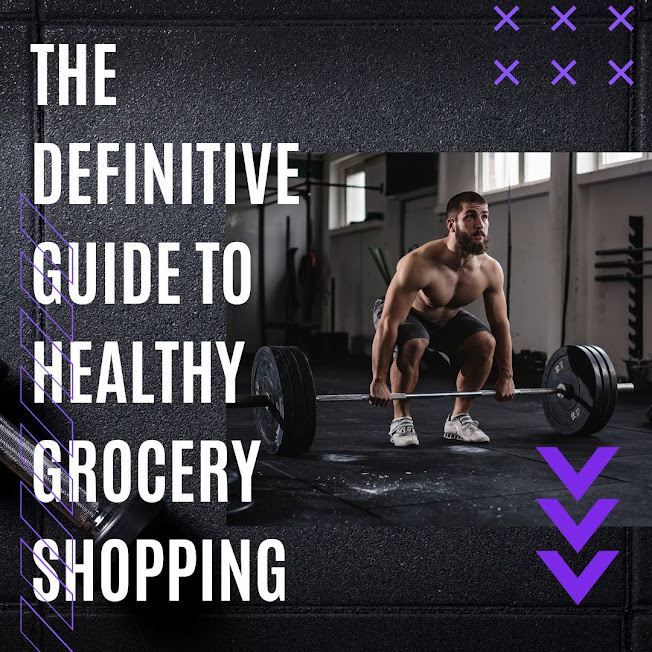7 Nutrition Tips For A Successful Transformation
We have athletes from Gymnasiumhealth available to assist! They are thoroughly aware of what it takes to optimize your diet for lasting change. Use their advice in your diet plan to effectively burn fat and gain muscle.
1. Adjust Calories On Non Training Days
Many people hoping to alter their bodies make the error of consuming the same number of calories during training sessions as they do during non-training sessions. A fitness model and athlete, claims that during the transformation process, many don't adequately feed. "You need more nourishment to workout and support your body's healing on training days."
On days when you are not training, we advise consuming fewer calories; on days when you are, we advise eating more. Her daily calorie intake is 2,000 calories on days off and 2,500 calories on days she is working.
Your calorie intake should be adjusted in accordance with your weight, gender, objectives, and level of exercise, but instead of drastically changing it by thousands of calories, stick to a 500-calorie swing. Many of these calories may be obtained from protein and additional carbs, which will support optimal performance on the days you workout.
2. Listen To Your Body
You might believe that eating healthily is simple: You never deviate from a list of items that are allowed on your diet. However, it's crucial to customise your dietary strategy. A fitness model, advises not to ignore the way your body reacts to certain foods.
Even if a certain cuisine may be nutritious for you, it may not make you feel great. If anything causes your body to respond poorly, leave it out of your diet. Replace everything you do decide to take out with an alternative, healthier option.
Don't make yourself consume something you detest or have bad reactions to just because your plan specifies them.
3. Don't Be Too Restrictive
There is no doubt that healthier food choices are necessary if you want to reduce your body fat. Unhealthy meals that may have previously filled your plate will likely be excluded from your new regimen. However, don't start your journey by giving up everything you enjoy eating.
A personal trainer, advises clients to "focus on eating nutritious meals as much as possible, but don't see any item as "off limits." You'll go crazy and your strategy won't work if you limit yourself to eating the same few meals repeatedly.
"You should be aware that there is room for occasional treats provided you choose healthy options for the majority of your carbohydrate, protein, and fat meals. The key is balance ".
4. Power Up With Protein
Every meal should contain 20 to 30 grames of high-quality protein to promote muscle development and raise rates of protein synthesis. To put it another way, protein is king! Therefore, if you began your transformation but haven't yet upped your protein consumption, it's time.
However, increasing your protein intake doesn't need you to gorge on meat at every meal. Fitness competition explains why lentils, beans, tempeh, and soy are good sources of protein for vegetarians. "Additionally, it's crucial to remember that your body is impacted by the quality of the food you eat. You'll feel better the healthier the things you put into your body."
5. Don't Fear Fat
Some people totally eliminate dietary fat because they believe it doesn't fit in a diet designed to burn fat. However, the fact remains that your body need dietary fat in order to burn fat. According to studies, consuming nutrient-rich good fats like omega-3 fatty acids might really help with fat burning.
We advise eating plenty of fibre vegetables, low-glycemic fruits like berries, and, of course, healthy fats from sources like fish, fish oil, nuts, avocados, and olive oil.
6. Decrease Calories Slowly
Suddenly cutting your daily calorie intake from 2,500 to 1,500 might make you feel famished, restricted, and dissatisfied. It is much preferable to reduce gently. I advise cutting 200 calories from your present diet and gradually increasing your exercise and intensity levels after that.
Slowly reducing your caloric intake will assist to guarantee that you continue to notice improvements. You won't be able to go forward if you start your trip by reducing your calorie consumption too fast.
You can advance for the long run if you start with the very minimum effective amount of calorie restriction and cardio.
7. Stay Hydrated
Everything from your metabolic rate to your energy levels might be affected by dehydration. Too many individuals spend the entire day slightly dehydrated, which makes them feel tired when they shouldn't and makes them eat when they should just be drinking.
How can you tell whether you are well hydrated? The easiest method is to observe the colour of your urination. Your urine should be the colour of lemonade; if it seems more like apple juice, you should consume additional liquids.
You could notice that your pee is a bright neon yellow if you take a multivitamin (due to excess riboflavin).




Comments
Post a Comment